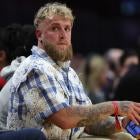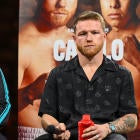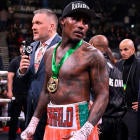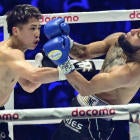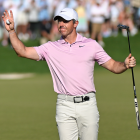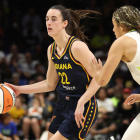It's hardly a guaranteed pathway to professional boxing supremacy.
In fact, ring history is littered with examples of fighters who strutted their stuff on the Olympic stage, then fell flat on their medaled faces when the fights got longer and the gloves got smaller.
Exhibit A: Heavyweight gold medalist Henry Tillman.
The Californian ascended the medals stand at the 1984 Games in Los Angeles, then embarked on a forgettable punch-for-pay career in which he lost six fights, was stopped four times and fell in seven rounds in the only sniff of a title bout he got before exiting for good at age 32.
Oh, and the guy he beat to punch his ringed ticket to L.A.?
Mike Tyson.
Still, while there's no guarantee a shiny medal will mean anything once the headgear comes off, there remains ample modern-day proof, too, that establishing street cred on the headiest amateur stage can indeed be a payoff when it comes to the pro game.
Of the top seven fighters in Ring Magazine's most-recent pound-for-pound rankings, no fewer than four have "Olympic medalist" on their resumes -- including three golds and a silver.
Four-belted middleweight monster Gennady Golovkin was a silver medalist at 165 pounds in the 2004 Games. Additionally, former super middleweight king Andre Ward was a light heavyweight Olympic winner in 2004, WBA super bantamweight champ Guillermo Rigondeaux won gold at both the 2000 and 2004 Olympics and WBO junior lightweight claimant Vasyl Lomachenko grabbed golds in 2008 and 2012.
They're ranked third, fourth, sixth and seventh by The Ring and have compiled a ridiculous 87-1 record with 62 knockouts.
"Competing in the 2004 Olympics and winning a gold medal was one of the highlights of my life and boxing career for a lot of reasons," Ward told HBO Sports. "The Olympic Games shaped me and gave me confidence. It gave me the attitude to know that I belong at the highest level."
And Ward's not the only one who'll vouch for the value of the Olympic experience.
Two of the three men who label now themselves as heavyweight champions -- Deontay Wilder (WBC) and Anthony Joshua (IBF) -- won bronze and gold at the 2008 and 2012 Games, respectively.
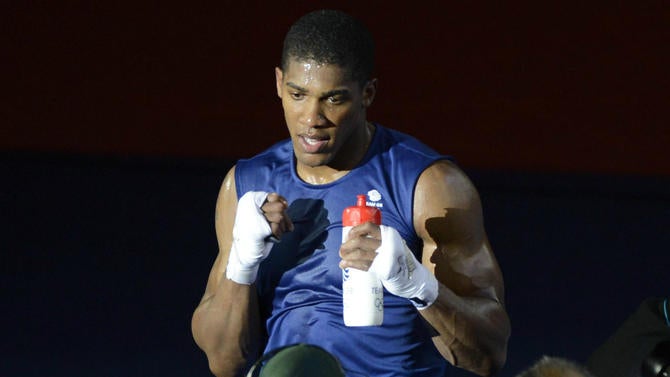
The evidence doesn't end with active fighters. Some of the most memorable success stories in the sport's heavyweight history began with long Olympic runs, including 1960 golden boy Cassius Clay, 1964 and 1968 winners Joe Frazier and George Foreman and 1988 champion Lennox Lewis.
When it comes to other weights, the elites often come in clumps.
The 1976 U.S. Olympic team at Montreal included gold medalists-turned-world champions Leo Randolph, Ray Leonard, Michael Spinks and Leon Spinks, while the aforementioned 1984 team in Southern California had similarly dual elites in Meldrick Taylor, Pernell Whitaker, Mark Breland and Frank Tate - not to mention Evander Holyfield, who got bronze after a controversial disqualification.
"I've been a gold medalist and a world champion," Leonard told ESPN.com. "They each hold their own significance, but I have to look at where it all started -- the Olympics. That's No. 1 for me."
Oscar De La Hoya was the lone American gold medalist in 1992, but went on to world titles in six pro weight classes. And in 1996, gold medalists David Reid, Vassiliy Jirov and Wladimir Klitschko ultimately copped title belts from 154 pounds all the way to heavyweight.
"(It was) absolutely a highlight in my life," Klitschko told CNN.












